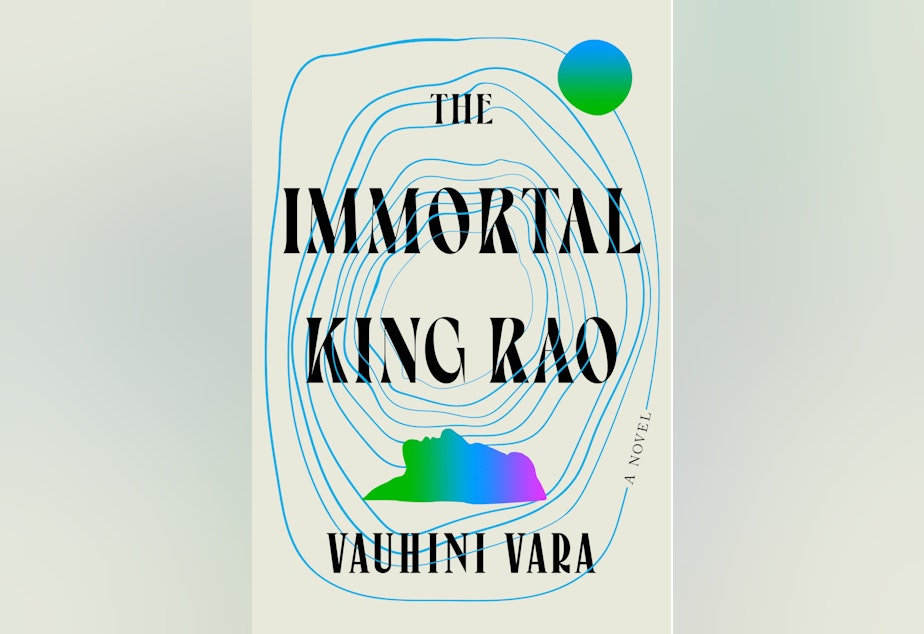A Puget Sound tech dystopia: Vauhini Vara's "The Immortal King Rao"

The fictional tech company at the center of the new book, “The Immortal King Rao,” is called “Coconut.” It’s a rough amalgamation of Apple and Microsoft of the 1980s and 1990s, driving a personal computer revolution, and later it morphs into a Google, Amazon and Facebook avatar in the way it gobbles up peoples’ data and monetizes human interaction.

However, instead of being started by mostly white guys in a garage, Coconut is founded by a young immigrant from India named King Rao – who’s a member of the Dalit caste – and his co-founder is a white American woman who becomes his wife, named Margaret. The story begins in a not-too-distant future that Coconut dominates: citizens are all called “Shareholders,” while the mysterious "Board" and an all-powerful algorithm control most of a world that’s been devastated by climate change.
Our narrator and guide is Margaret and King’s, daughter, Athena, who’s in prison facing charges of a serious crime. To clear her name, Athena must track back and explain her father’s life: from a humble coconut farming family to the tech titan he becomes. The novel is a multigenerational saga tracking King Rao’s evolution over time, the choices he and Margaret make, and how this tech-fueled, dystopian future came together.
The Immortal King Rao is the debut novel from Vauhini Vara. Vara spoke with Soundside's Libby Denkmann about her fiction inspirations, her career reporting on the tech industry, and how that reportage and her family's immigrant history shaped the world of King Rao.





